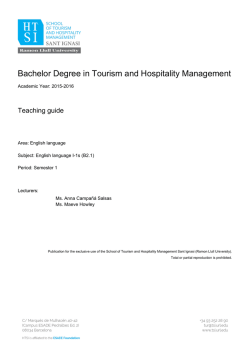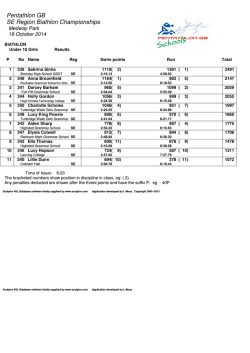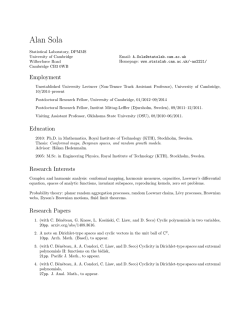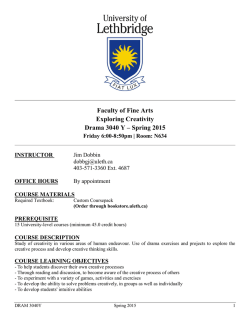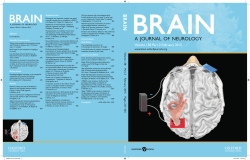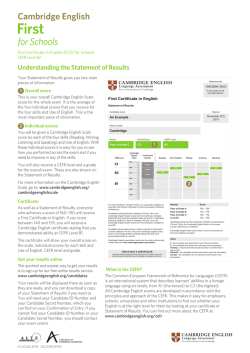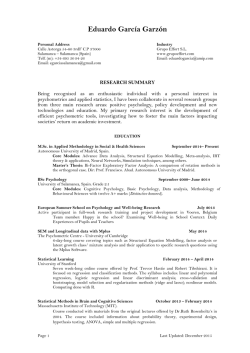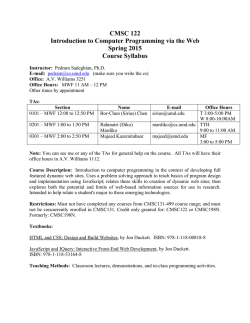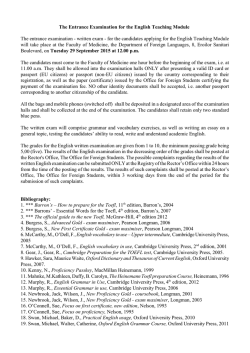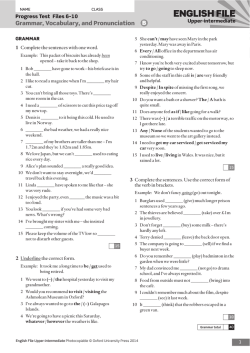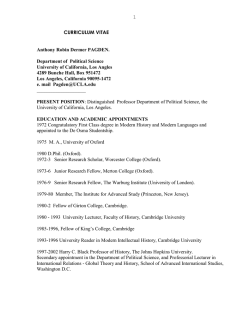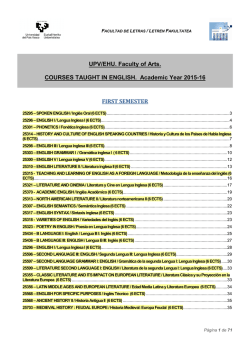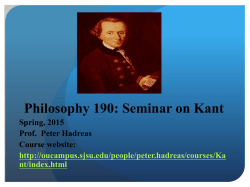
Course description
Title of Course Unit: Classes per week: Prerequisites: ESL Course NBB_AN136G3 2 Credit value: 2 Type: seminar Course description: This course is intended to provide students with an introduction to the ESL. After some review of the basic grammar structures, the course will focus on a variety of practical issues. Topics including: basic grammar structures, oral topics, improving writing skills etc. Instructor: Language of instruction: Semester: Readings: Attila Takács English Readings Jones, Leo (1998), New Cambridge Advanced English Student’s Book. Cambridge: Cambridge University Press. McCarthy, Michael and O’Dell, Felicity (2001), English Vocabulary in Use Upper-Intermediate. Cambridge: Cambridge University Press. Oshima, A and Hogue, A (1998), Writing Academic English. USA: Pearson. Vince, Michael (2003), Advanced Language Practice with Key. Oxford: Macmillan. Longman Dictionary of Contemporary English (2001). Harlow: Pearson Education. Harris, Michael and Mower, David (2002), Opportunities: Upper-Intermediate Student Book. Pearson English Language Teaching. Obee, Bob and Evans, Virginia (2003), Upstream Upper-Intermediate Student’s Book. Newbury: Express Publishing. O’Connor (1980), Better English Pronunciation. Cambridge: cambridge University Press. The basic textbooks for the course is the Practical English Grammar (copy is available at room 6) Additional information Most readings are available online or in PDF format from the teachers. Extra grammar exercises will be available online. Requirements and grading: Course requirements The final project for the course will be a test paper. A midterm test will be taken in March on all the grammar structures and presentations up to that point. These are all course requirements and failing to complete any of these will result in a fail grade. Group presentations must be supplemented by handouts and/or power point presentations. Grading policy Class participation: 20%; midterm: 30%; final test (written form): 50%. 60 or below: fail. Additional information Most readings are available online or in PDF format from the teachers. Presentations will be supplemented by handouts and/or power point presentations. Plagiarism policy: There will be absolutely no tolerance for any kind of plagiarism or academic dishonesty. All forms of plagiarism will result in an automatic failure of the class. Grading: Grades will be calculated according to the following matrix: 0-59%: fail (1), 60-69%: poor (2), 70-79%: average (3), 80-89%: good (4), 90-100: excellent (5). Further Rules If you must miss a class, please let me know, and make arrangements to complete any work missed. Students are kindly requested to contact their tutor at least a day before class if they are to make a presentation but cannot attend. If you do not turn up on occasions when course assignments (presentation, quizzes) are due and you fail to notify the tutor you will lose all the credit points on the particular assignment. There is no excuse not to come to class when the end-term is due. Academic dishonesty and plagiarism (failure to acknowledge and note the use of another writer’s words and ideas) is both unethical and illegal and will result in a failure of the course. If you have a compelling reason for arriving late or leaving early, speak with your instructor about the problem. If you regularly cut the beginning and/or the end of class sessions, it can add up to unexcused full-class-time absences.
© Copyright 2026
